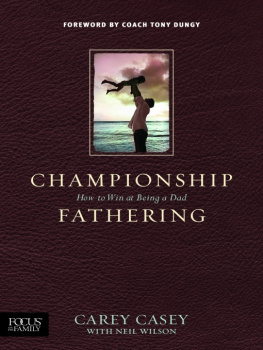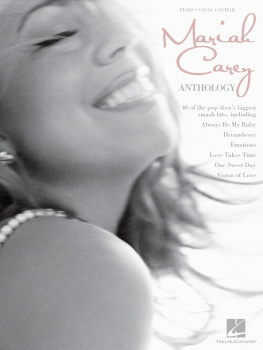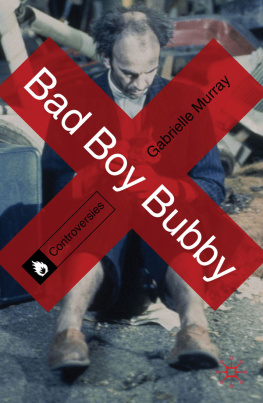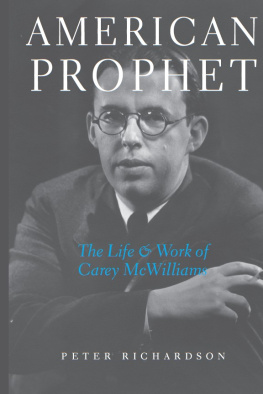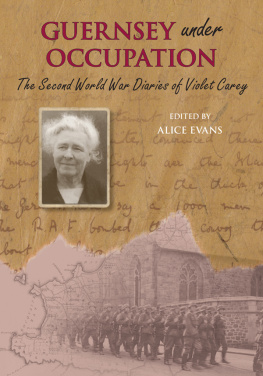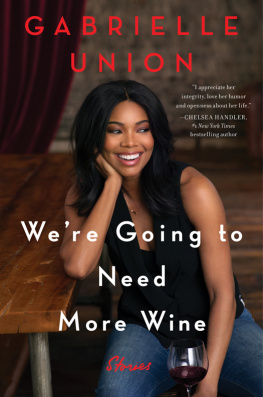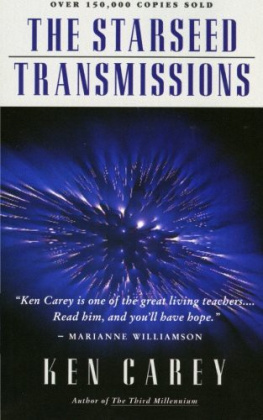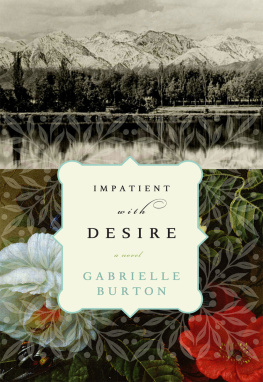Gabrielle Carey - Only Happiness Here
Here you can read online Gabrielle Carey - Only Happiness Here full text of the book (entire story) in english for free. Download pdf and epub, get meaning, cover and reviews about this ebook. year: 2020, publisher: University of Queensland Press, genre: Non-fiction. Description of the work, (preface) as well as reviews are available. Best literature library LitArk.com created for fans of good reading and offers a wide selection of genres:
Romance novel
Science fiction
Adventure
Detective
Science
History
Home and family
Prose
Art
Politics
Computer
Non-fiction
Religion
Business
Children
Humor
Choose a favorite category and find really read worthwhile books. Enjoy immersion in the world of imagination, feel the emotions of the characters or learn something new for yourself, make an fascinating discovery.

- Book:Only Happiness Here
- Author:
- Publisher:University of Queensland Press
- Genre:
- Year:2020
- Rating:4 / 5
- Favourites:Add to favourites
- Your mark:
- 80
- 1
- 2
- 3
- 4
- 5
Only Happiness Here: summary, description and annotation
We offer to read an annotation, description, summary or preface (depends on what the author of the book "Only Happiness Here" wrote himself). If you haven't found the necessary information about the book — write in the comments, we will try to find it.
Only Happiness Here — read online for free the complete book (whole text) full work
Below is the text of the book, divided by pages. System saving the place of the last page read, allows you to conveniently read the book "Only Happiness Here" online for free, without having to search again every time where you left off. Put a bookmark, and you can go to the page where you finished reading at any time.
Font size:
Interval:
Bookmark:
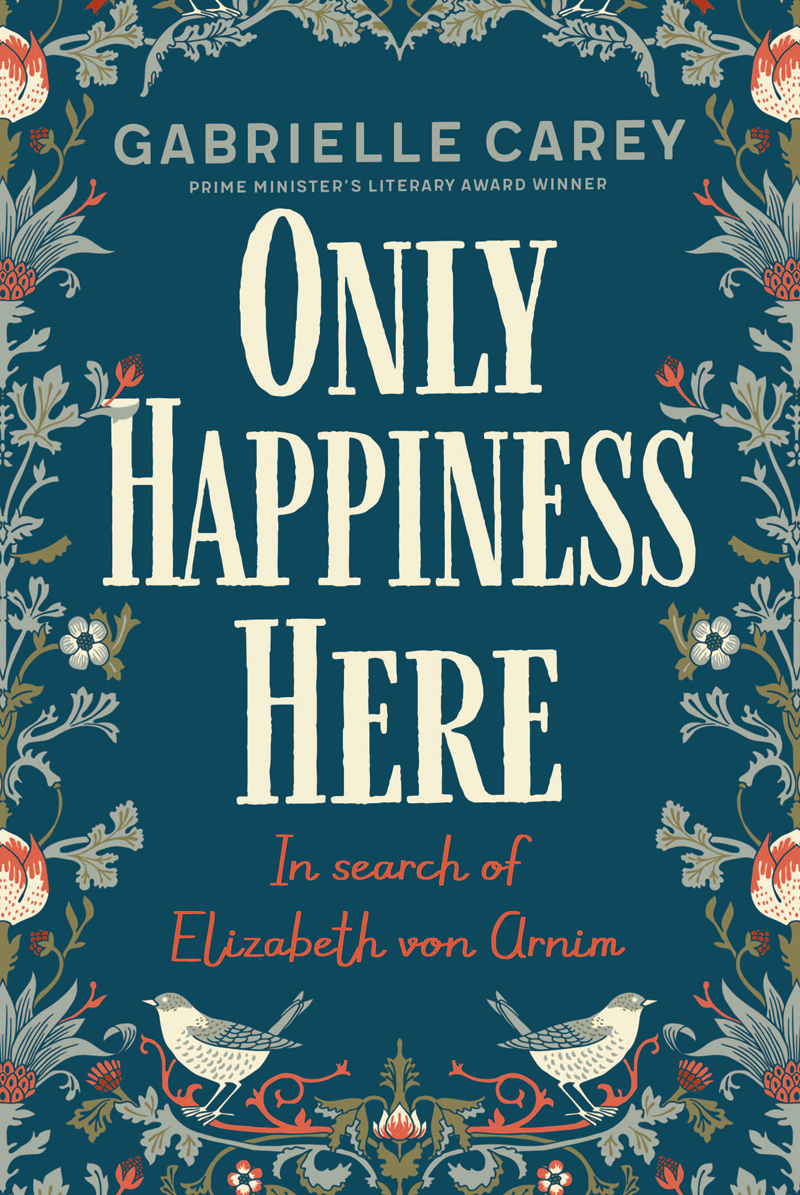
Gabrielle Carey is a writer and author of ten books, including Moving Among Strangers: Randolph Stow and my family , which jointly won the 2014 Prime Ministers Award for Non-Fiction and was shortlisted for the National Biography Award, and Falling Out of Love with Ivan Southall (2018). Her essay Waking Up with James Joyce was chosen as a Notable Essay in The Best American Essays 2019 edition. She teaches creative non-fiction at the University of Technology Sydney. In 2020 Carey was shortlisted for the Hazel Rowley Literary Fellowship for her work on Elizabeth von Arnim.
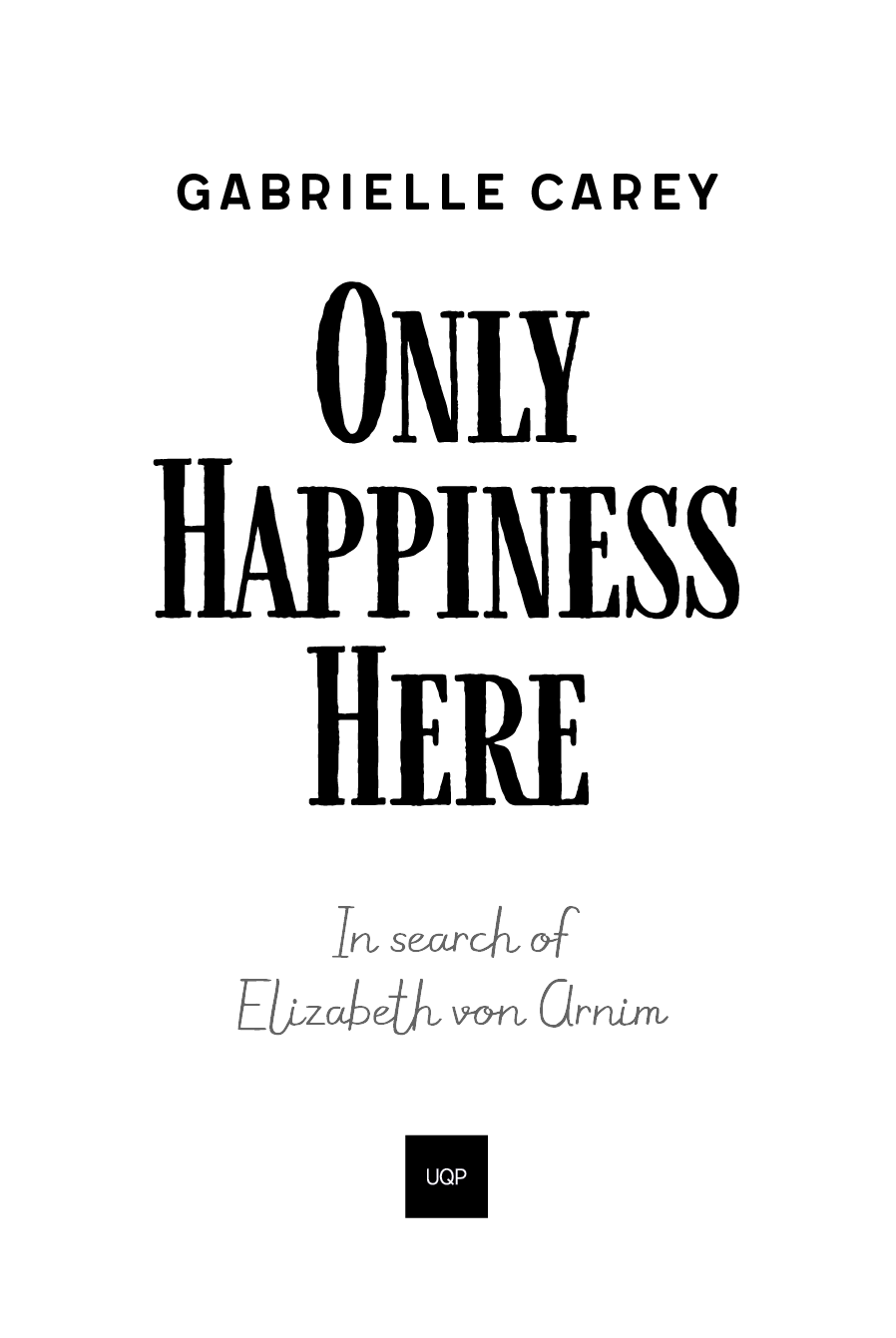
Dedicated to Ursula D because
kindred spirits are so very, very rare .
When I discovered Elizabeth von Arnim, I found, for the first time, a writer who wrote about being happy. So much of my reading life which essentially means so much of my actual daily life had been spent reading miserable literature because, lets face it, most literature is miserable. The novel that influenced me most in my early twenties was Les Misrables. Then I went on to adore the tragedies of Thomas Hardy, the horrors of Zola, the suffering of Dostoevsky, the pain of Tolstoy and the misfortunes of Henry Handel Richardson. My reading life, which led to my writing life (after which there wasnt much left over), had been misery from cover to cover. Until Elizabeth.
The words happy and happiness occur remarkably frequently in Elizabeths novels and diaries, contradicting the usual image of the writer as dour, introspective, depressed the kind of writer I had read, I had known, and I had been for most of my life. Elizabeth was the first person to inspire me even instruct me on how not to be that kind of writer. Indeed, how not to be that kind of person.
As a result, I became something of an Elizabeth von Arnim evangelist, proselytising to everyone I met about this brilliant, Australian-born author who had vanished from literary memory. I felt incensed, on her behalf, that she had been so completely forgotten and soon became possessed, the way biographers do, by the idea of writing a book about her. But just as I was going to put pen to paper, fate intervened. A catastrophic event hit my family that put all my plans on hold, the repercussions of which will be with us forever.
Months later, as we seemed to be beginning to recover, I discovered I had been the victim of a major identity theft that resulted in three loans I had never applied for, from banks Id never heard of, and a particular kind of chaos that involved a dimension of existence I had spent my life trying to avoid: banks, credit agencies, tax offices, health insurers, mobile phone companies. Countless hours were spent listening to Muzak while I waited to talk to a cyber-security expert about my hacked email account, my ported mobile number, my PayPal password, my stolen Visa card. Then when the police caught the fraudster, completely by accident, the arrest unleashed a series of interviews with detectives, subpoenas, witness statements and a court appearance, where I finally came face-to-face with my imposter and was surprised to find how deeply I hated her. Or was it really my own life I loathed?
By then I had almost completely forgotten what happiness felt like. So depleted was I that I decided to take a year off work, unpaid, with absolutely no idea how I was going to survive. I told myself that I was giving myself time off to recover from the worst year of my life. But my other reason or I should say my real reason was that taking leave from work would allow me to write. What I didnt realise was how these two projects would become intertwined: reading and writing about Elizabeth would become one of the essential keys to my recovery. If my previous book had taught me about courage and resilience, this one, I hoped, might teach me about happiness.
The first thing that Elizabeth taught me about happiness was that to begin you have to believe. At that stage of my life, I had completely lost faith in the very idea of happiness, let alone the pursuit of it. Whenever anyone used the word I cringed: a trite, meaningless concept, I would reflect privately a myth that we all continuously subscribed to in the face of a reality that so clearly contradicted our determined denial. Nothing more, in essence, than a collective delusion.
Elizabeth, on the other hand, believed that happiness was attainable by all except the unworthy and deluded. And I found that by ensconcing myself intensely in her novels and her life over a period of a year, my attitude changed from complete cynicism to a gradual openness to the possibility of happiness. She didnt change my mind by way of philosophical argument; it was more like being exposed to an indefinable infection. It was something I caught. And although I cannot really explain how, it felt palpably real. I now call it E.E., the Elizabeth Effect.
My quest to learn more about Elizabeth von Arnim was born of an intense admiration of her writing, especially her light touch when satirising the men who were continually trying to thwart her irrepressible spirit. I was also fascinated by her ability to love, laugh and mother five children, while also managing to write a comic novel, on average, every year. Somehow she could do all that and still find time to enjoy picnics and read poetry in the sun. The truth was that I wanted to be her: talented, accomplished, funny and also, fairly regularly, rapturously happy.
Elizabeth von Arnim was born in Sydney, in 1866, to an English merchant family. Christened Mary Beauchamp, she was the cousin of the modernist short story writer and poet, Katherine Mansfield (also originally a Beauchamp), and the last person Mansfield wrote to before her untimely death. She was the lover of H.G. Wells, employer of E.M. Forster, a close friend of Bertrand Russell and survived marriages to a brutish German count and a notorious English Earl, all the while producing an enormous body of work. Part satirist, part feminist and part nature writer, she was a passionate gardener and a lover of the outdoors. Im so glad I didnt die on the various occasions I have earnestly wished I might, she wrote, for if I had I would have missed a lot of lovely weather.
According to the Australian biographer Verna Coleman:
Elizabeth was a mountain of vanity and had the will power to fight for what she thought her due. A powerful personality fearless, determined, able, clever. She created a persona that took her to comparative heights for an Australian-born intruder of no class standing. Talented, musical, petite and pretty definitely a girl from far away, even a girl from nowhere. This was the girl that was to become a tough-minded Prussian aristocrat and a dryly comic observer of European and English life.
Of all the many literary figures I have admired over the years, if there was one writer I could go back in time and spend a day with it would be Elizabeth. In part for her intellect and wit, but mostly because Im absolutely certain she would be great fun. That is, if she thought my company worthwhile. According to Australian-born writer Deborah Kellaway:
If she thought you stupid, or hidebound, she would make you shrivel under her contempt and impatience. But if you amused her she would be, in return, like a glass of champagne: sparkling, dry, lifting the present moment until it blotted out all humdrum anxieties and fears for the past and future, and leaving a sense of flatness behind her when she went away.
Which is how I feel whenever I put down one of her novels I miss her sparkling presence. But I only need go back to one of the books I havent read for a while and pick up any page and she will always make me laugh or marvel or feel grateful as though she were letting me in on some essential secret about how to live, but without ever spelling it out. I simply feel uplifted by her spirit, or what others might call her joie de vivre .
Font size:
Interval:
Bookmark:
Similar books «Only Happiness Here»
Look at similar books to Only Happiness Here. We have selected literature similar in name and meaning in the hope of providing readers with more options to find new, interesting, not yet read works.
Discussion, reviews of the book Only Happiness Here and just readers' own opinions. Leave your comments, write what you think about the work, its meaning or the main characters. Specify what exactly you liked and what you didn't like, and why you think so.

